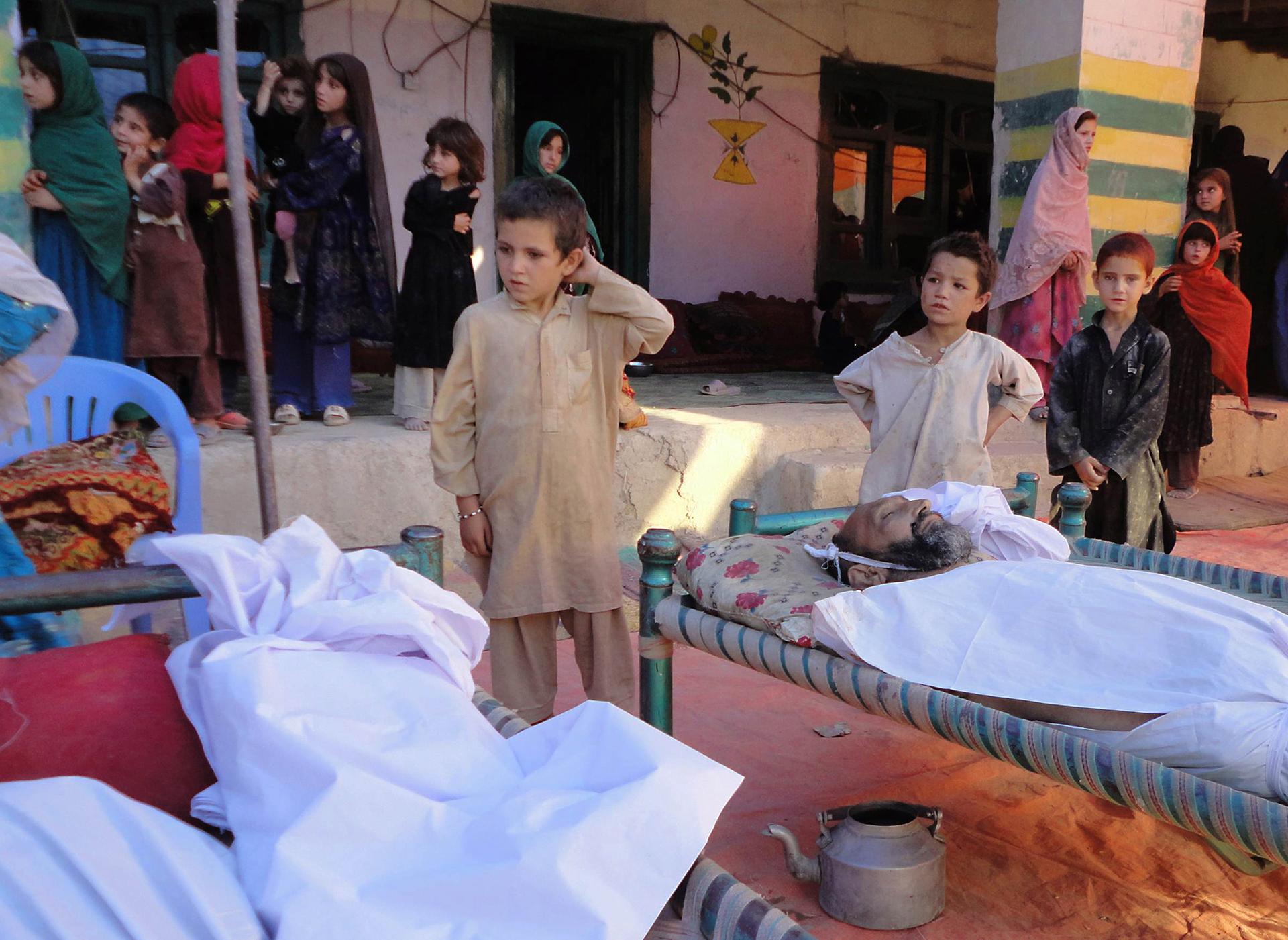NATO and Karzai to investigate Afghanistan air strikes said to kill family
Afghan children stand over the bodies of people who were killed in a night raid in Khost province on July 14, 2011.
Afghan President Hamid Karzai and NATO commanders have ordered an investigation into reports that a family of eight were killed Sunday in a coalition air strike in eastern Afghanistan.
According to the LA Times, the air strike occurred around 8 p.m. Saturday in the Gerda Serai district of Paktia province along the Pakistan border.
The Times cited Rohulla Samoon, spokesman for the Paktia governor’s office, as saying a NATO air strike had killed eight civilians — Mohammed Shafi, his wife and his six children — in their home.
Further, Agence France-Presse cited Samoon as saying that "this man had no connection to the Taliban or any other terrorist group."
The New York Times cited a spokesman for the Afghan National Army in Paktia, Col. Fazli Khuda, as saying the strike was part of a joint operation to target insurgent fighters from the Haqqani faction who operate in the region.
Sar Khilo is a remote, mountainous area on the border between Paktia and Khost province and is dominated by the Zadran tribe, which is the same tribe as the Haqqani clan.
A NATO spokesman told the LA Times the incident came after an insurgent attack on Western troops in Paktia province.
Coalition troops had returned fire and called for air support.
"We’re actively gathering information to assess what did occur," US Air Force Capt. Justin Brockhoff, a coalition spokesman, told the LA Times.
The Associated Press noted that Karzai — increasingly incensed by the killing of civilians by foreign forces — had warned earlier this month that civilian casualties could undermine a strategic partnership with the US over the withdrawal of international troops by the end of 2014.
UN figures suggest that more than 3,000 civilians were killed in wartime violence in 2011, with Western coalition and Afghan troops were responsible for 14 percent of those deaths.
Karzai had appointed a delegation to travel to Paktia province and determine what happened, the AP reported.
More from GlobalPost: Kandahar shootings – for Afghanistan, it's just another civilian casualty
The story you just read is accessible and free to all because thousands of listeners and readers contribute to our nonprofit newsroom. We go deep to bring you the human-centered international reporting that you know you can trust. To do this work and to do it well, we rely on the support of our listeners. If you appreciated our coverage this year, if there was a story that made you pause or a song that moved you, would you consider making a gift to sustain our work through 2024 and beyond?
